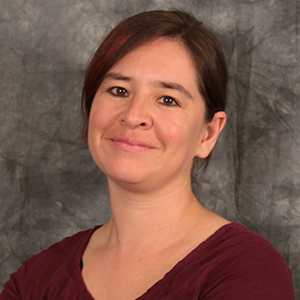UT Scientist Asks ‘How Do We Observe Black Holes?’ in TAMIU Lecture Sept. 12

She has the distinction of helping to discover a new kind of Black Hole and on Wednesday, September 12, research scientist Dr. Eva Noyola will share her insight in a free lecture, “How Do We Observe Black Holes,” at Texas A&M International University (TAMIU).
Dr. Eva Noyola, of The University of Texas at Austin’s department of Astronomy and the famed McDonald Observatory, will lecture at 6 p.m. in the TAMIU Center for the Fine and Performing Arts Theatre. The lecture is free of charge and open to the public.
The event is hosted by the Lamar Bruni Vergara Planetarium with generous assistance provided by local philanthropist Guillermo Benavides Z., who said he’s excited to help make the opportunity possible.
“I’ve always been intrigued by the science of black holes and wanted to be able to make possible a special lecture by this esteemed scientist right here at TAMIU. I hope Laredoans will come out to support Dr. Noyola and learn about our incredible universe,” Benavides Z. said.
The term “Black Hole” has come to be defined as a place in space where gravity pulls so intensely that not even light can escape. Created when a star is dying, the gravity in a black hole is so strong because matter is being collapsed into a tiny space.
Dr. Noyola believes the popularity of Black Holes has grown exponentially with Hollywood visibility accorded through the “Star Trek” TV and film series, and recent hits like “Interstellar.”
“I recently talked about planets to 12 different elementary groups from my daughter’s school. 80% of them ended up asking about black holes! Yes, black holes are extremely popular, and I am very happy to talk about that,” she said.
Born and raised in Mexico City, Noyola earned a physics undergraduate degree at the National Autonomous University of Mexico (UNAM) in Mexico City. She earned her PhD in astrophysics at UT-Austin in 2006. Postdoctoral work has been undertaken at Germany’s Max-Planck Institute for Extraterrestrial Physics in Garching, and at the Astronomy Institute at UNAM in Mexico City. She returned to UT and the McDonald Observatory in 2013 as a research scientist.
In 2008, while working with astronomer Karl Gebhart andusing the Hubble Space Telescope and Gemini South Observatory at Cerro Pachon in Chile, Noyola helped to find evidence of a new kind of medium-sized Black Hole. Located at the core of Omega Centauri, one of the largest globular star clusters orbiting the Milky Way Galaxy, the Black Hole is estimated to be about 40,000 times the mass of the Sun.
Noyola says her research looks for Black Hole clues within our own galaxy.
“My research has focused on how stars move within small objects, such as globular clusters and dwarf galaxies. I am an observer, so I use both images and spectra to study these bodies. An important focus of my research has been finding clues for the existence of medium-size black holes in some clusters around our own Galaxy,” she explained.
During her extended stay in Laredo, Dr. Noyola will also meet with the Laredo Rotary Club and local elementary school students from both Laredo, United Independent School districts and private schools. She will also judge a local Science Video Competition focused on Black Holes Thursday, Sept. 13.
For additional information, contact the Lamar Bruni Vergara Planetarium at 956.326.2463, emailalejandra.martinez1@tamiu.edu, or visit the Planetarium online at http://www.tamiu.edu/planetarium/